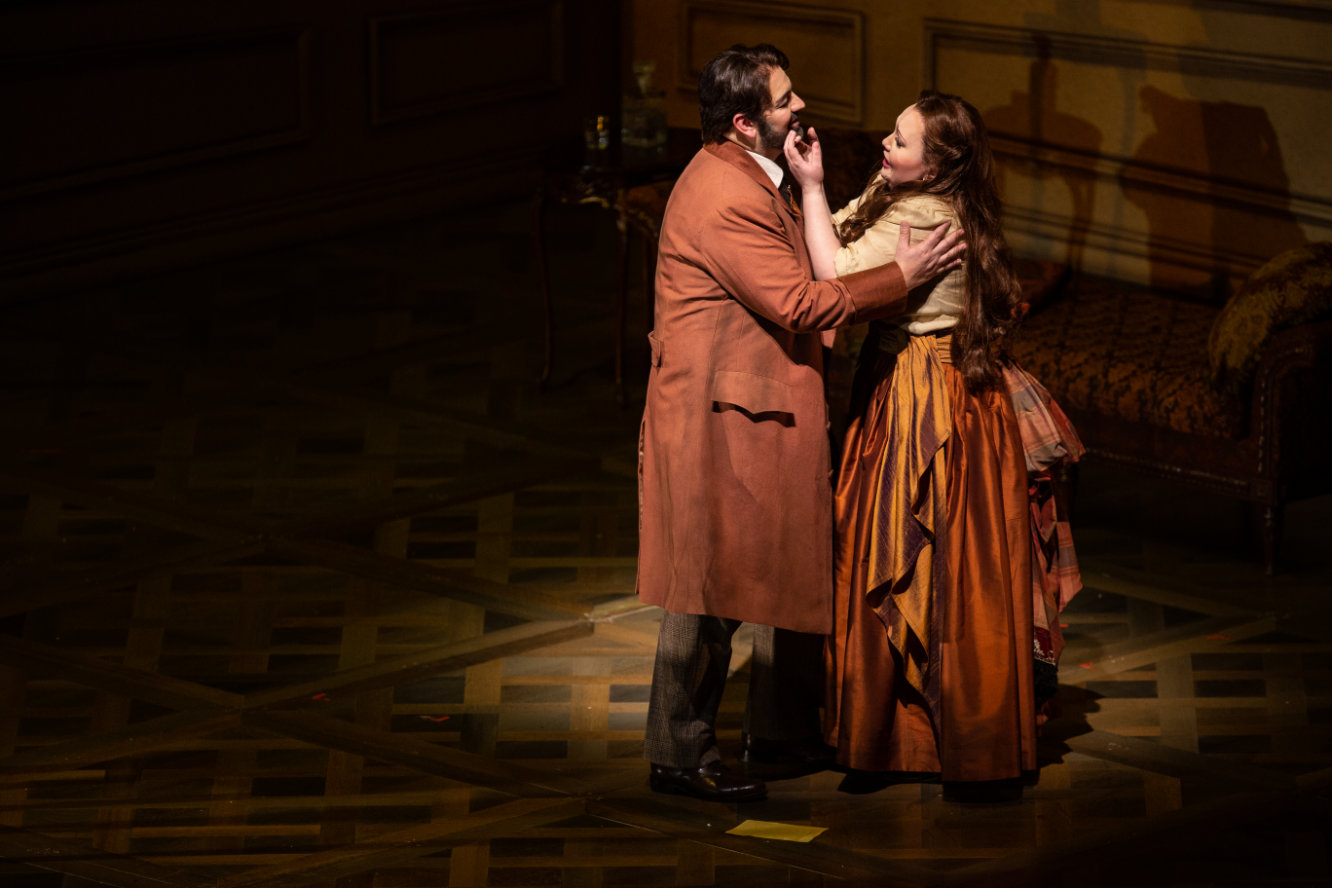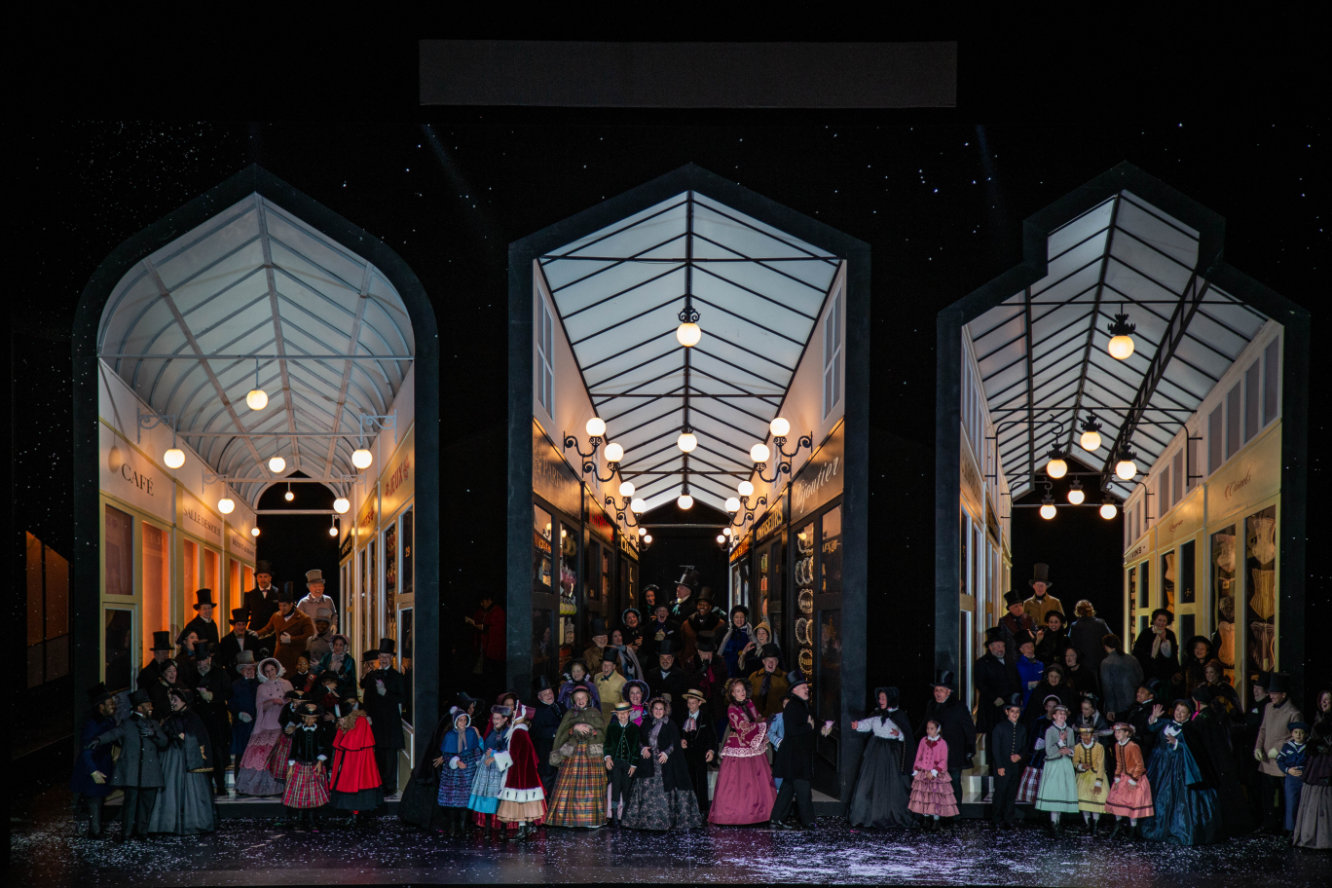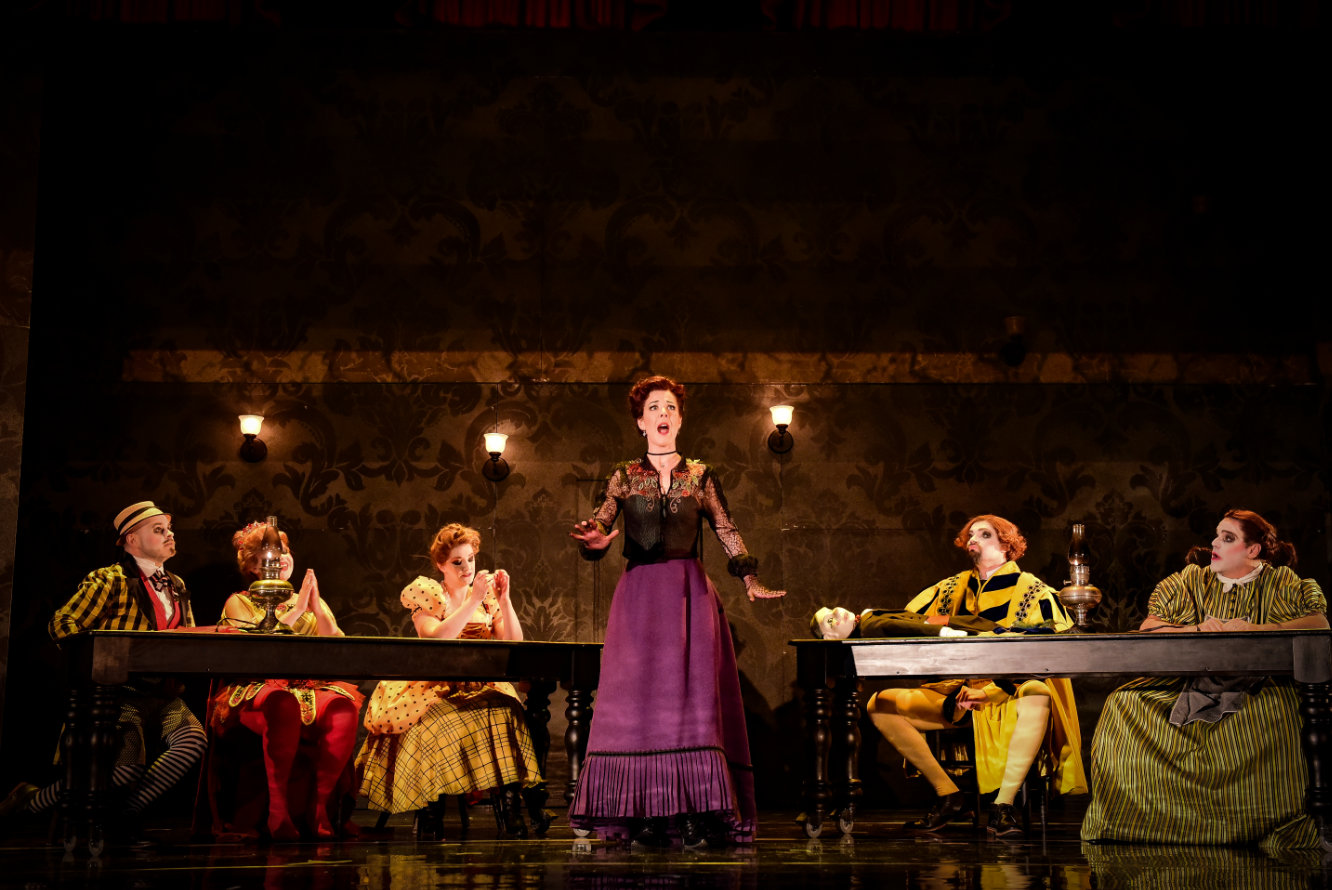Opera Sense recommended audio and video recordings, as well as musical score:
I appreciate this production of Così fan tutte; right or wrong, it does something unconventional while staying true to the story. The traditionalists bemoan this sort of thing, while the radicals claim it doesn’t do enough. For folks like me, however, this production hits the sweet spot: it does enough to keep me on my toes, yet when the performance is over, I feel as though I have just seen a Così.
The production currently on stage at Lyric Opera of Chicago is a joint production of Opéra de Monte Carlo and San Francisco Opera. The original director, John Cox, who served as Glyndebourne’s director of productions for ten years, had the background one needs to do something as bold as he did: change the ending of a canonical opera. The ending of Così has always been a bit of a letdown. I can’t help but be reminded of the end of Grease when Rizzo suddenly yells out to Kenickie, “I’m not pregnant!” when the lovers in Così shrug and say, “Oh well! Let’s get married!” Pretty anticlimactic.
Cox, however, doesn’t let us have a dull ending. After all is said and done, the lovers are all different people, not knowing exactly what to think or feel, just like we’re used to. Things quickly get realer than that, though, in Cox’s version: Ferrando and Guglielmo are summoned to war. Real war. This time they’re not likely to return within 24 hours, given that it’s August 1914.

Andrew Stenson as Ferrando, Alessandro Corbelli as Don Alfonso
Photo credit: Andrew Cioffi
In the opening scene of the production, Don Alfonso (played by Italian baritone Alessandro Corbelli) is a croupier managing a roulette table, at which both Ferrando (played by American tenor Andrew Stenson) and Guglielmo (played by Canadian baritone Joshua Hopkins) are players: a fitting relationship among characters given the story that is about to unfold. Corbelli, a seasoned comic opera artist, was in his element, though of the six leads, he was the one I had to struggle the most to hear. That said, he is obviously very comfortable in Don Alfonso’s shoes and has no trouble convincing the audience of this.
Puerto Rican soprano Ana María Martínez (Fiordiligi) and French mezzo-soprano Marianne Crebassa (Dorabella), who played the two female lovers, both have that rare gift needed in many Mozart soprano roles: a sizeable yet exceptionally nimble voice. Martínez gracefully maneuvered the massive leaps in her Act I aria “Come scoglio,” and runs were no match for her. She couldn’t project quite enough when the music pushed her voice into the basement, but there are few who can. Crebassa was a bubbly and confident Dorabella who masterfully handled her Act I opera seria-parody aria “Smanie implacabili” à la Hildegard Behrens performing Electra’s rage aria “D’Oreste, d’Ajace” in Mozart’s Idomeneo: arms suspended in the air, furious and frantic in thought and word. It was fun to watch!
The sisters’ maid, Despina, was played by the Russian soprano Elena Tsallagova, who is making her U.S. debut in this production. Elena was an absolutely delightful Despina, and her lighter lyric soprano was a perfect contrast to the more dramatic, heavier voiced sisters. Elena’s acting was particularly strong, as well. I was especially moved by her refusal to accept Don Alfonso’s payment at the end of the opera; many Despinas readily grab the money from Don Alfonso, but this Despina went deeper. She was horrified when she finally realized what she had unwittingly been coerced into doing by Don Alfonso, and her acquiescence was not for sale. I don’t know if this was a character choice by Tsallagova or Cox, but either way, it was effective.

Elena Tsallagova as Despina, Marianne Crebassa as Dorabella, and Ana María Martínez as Fiordiligi
Photo credit: Cory Weaver
Leading the orchestra was American conductor James Gaffigan, making his debut with the company in this production. The orchestra was bright, in tune, and light on its feet – three essential qualities when doing Mozart.
Lyric Opera of Chicago’s Così fan tutte had me sitting on the edge of my seat all evening. There was a moment in the last scene in which three of the characters – the two sisters and Ferrando – were all staring intently at the maestro and the audience heard some music that Mozart didn’t write, but the moment passed as quickly as it had come. I can’t say it didn’t break the spell of the moment, but these things happen in performance. All things considered, it was a great production of a classic work executed by artists in the prime of their careers.


